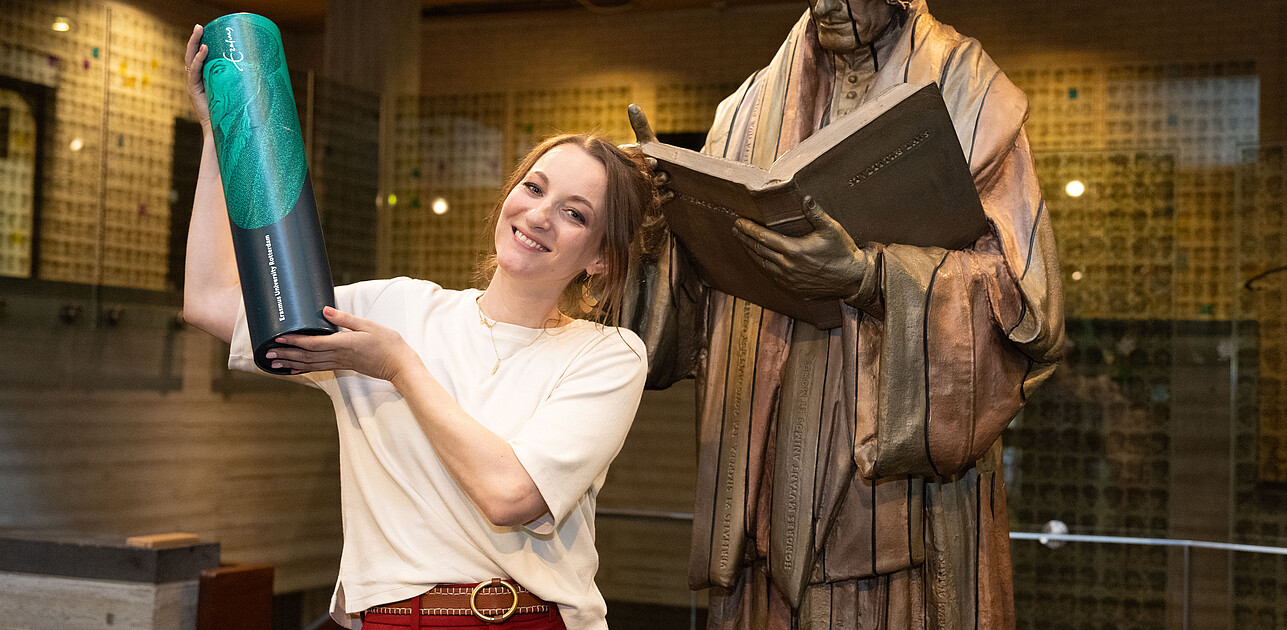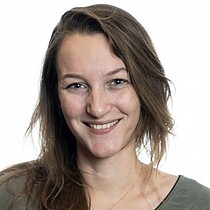

Article: Friday, 20 December 2024
Volunteers have more value than simply the money they enable organisations to save on labour costs. Dr Philine van Overbeeke’s PhD dissertation presents a compelling case for recognising the diverse and profound ways volunteers create value, and points the way for communities to optimise the way they engage their volunteers to benefit the organisation. Dr Van Overbeeke followed the Part-time PhD programme at Rotterdam School of Management, Erasmus University (RSM) and successfully defended her PhD thesis, Appreciating What Matters: The many dimensions of volunteer value, on 12 September 2024.
She challenges the simplistic financial take on volunteer contributions and explores how volunteers create value beyond being a cheaper replacement for paid staff. In some scenarios, volunteers supplement the paid workforce, increasing the whole labour pool. In others, they offer unique contributions that enhance and complement the work of paid staff, adding a separate labour pool.
Dr van Overbeeke’s research has shifted the focus from cost-savings to value creation, and calls for a new framework in managing volunteers and non-profits. It emphasises the need for inclusive, thoughtful approaches that make use of volunteers’ true potential, and proposes a research agenda that enables their multifaceted value to be investigated further. In particular, she raises arguments in national policy debates about the future of volunteering.
Volunteers bring unique skills, perspectives, and benefits that cannot be provided by paid staff – as well as their ‘free labour’. Philine’s research shows how volunteers contribute individually, organisationally, and societally. “This research is a step towards shifting the narrative and ensuring volunteers are valued for their full range of contributions,” she commented.
A significant part of her research focused on the role of around 2,000 volunteers at UNICEF Netherlands; they include board members, youth ambassadors, collectors, or people raising funds in other ways. The researcher organised focus groups with volunteers and paid staff at the organisation, asking both groups to describe the value of volunteers.
Van Overbeeke says, “Volunteers often pointed out that they have the goodwill factor. Because they do their work voluntarily, donors are more inclined to give money.”
Volunteers also feel that they can express their creativity better and can dare to think more creatively precisely because of the voluntary nature of their work. This dedication and enthusiasm of volunteers often drives successful outcomes, for example in Friesland volunteers organised an ice-skating marathon. UNICEF’s staff at its headquarters in The Hague would be less likely to propose this idea.
“And if a volunteer’s idea flops, they are less worried about the consequences because losing the role doesn’t mean they can’t pay their bills.”
Volunteer contributions have the most power when their strengths are combined to create an effective labour pool. These are attributes that volunteer managers have known and used for decades but Philine’s research uncovered important information about how volunteers are managed.
She emphasises how important it is to understand the motivations of volunteers. Some volunteers value the social aspect of offering their time and effort, while others prioritise flexibility. “As an organisation, you can tailor your volunteer recruitment strategies accordingly,” says Van Overbeeke. And think carefully about where to activate volunteers: “During one workshop, an organisation realised that they would be better off asking their current volunteers to recruit new volunteers instead of using paid staff for this. Volunteers have more persuasive power because they also volunteer for the organisation without being paid.”
Her research shows that diversity in the volunteer pool enhances value creation and highlights the need for inclusive volunteer practices. Large numbers of volunteers bring not only creativity but also diversity, and she found that there is more variety in age and education level among volunteers than among paid staff. For example, student volunteer teams are able to reach a younger audience, but still, some groups are often excluded from volunteer opportunities, so strategies to promote inclusion are essential for maximising the benefits that volunteers bring to organisations. Inclusion strategies can be as simple as encouraging, taking measures to become enabling, or even go as far as mandating volunteering.
The study also delves into volunteer tourism and volunteers who are immigrants from another country or from another setting. Dr van Overbeeke explains how these kinds of volunteers contribute to local communities and global understanding differently to their local peers.


Science Communication and Media Officer
Rotterdam School of Management, Erasmus University (RSM) is one of Europe’s top-ranked business schools. RSM provides ground-breaking research and education furthering excellence in all aspects of management and is based in the international port city of Rotterdam – a vital nexus of business, logistics and trade. RSM’s primary focus is on developing business leaders with international careers who can become a force for positive change by carrying their innovative mindset into a sustainable future. Our first-class range of bachelor, master, MBA, PhD and executive programmes encourage them to become to become critical, creative, caring and collaborative thinkers and doers.
